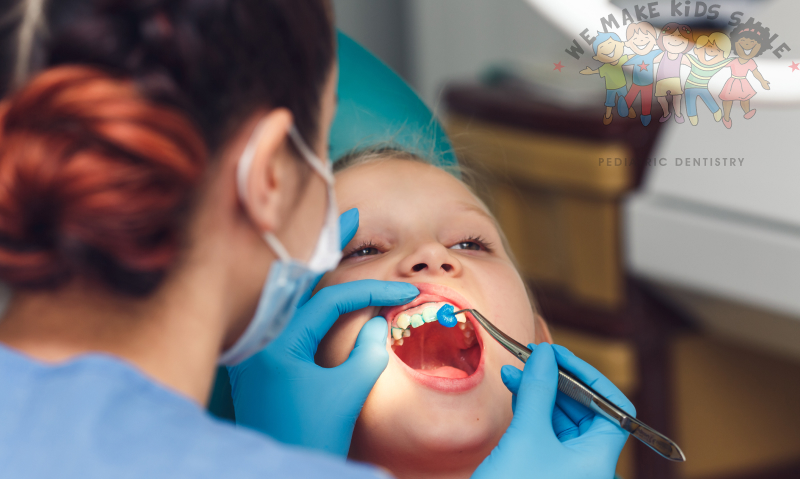Fluoride is an important mineral for your oral health.
It’s perfectly normal to want to know about everything that goes into our children’s mouths. You want to be sure you’re doing what’s best for them in every way. But with so many stories and articles out there in the world, it can be hard to cut through the clutter to determine what is truly safe or not.
Fluoride is one of those things that can sound scary, but it’s actually a naturally occurring mineral that can be found in water, soil, plants, and rocks. It’s useful for preventing tooth decay because it helps the teeth fight off cavity-causing bacteria. It might actually be in more places than you realize—including your drinking water. Did you know that the fluoride added to water is reported to reduce tooth decay by 25%? Today we’ve put together the answers to 5 FAQs we regularly hear from our patients.
1. Is fluoride safe for my child?
According to the American Academy of Pediatrics, fluoride is an amazing tool for preventing cavities in both children and adults. It adds an extra layer of protection against tooth decay. Not only does it help make enamel stronger against the acids created by harmful bacteria, but it also helps repair damaged enamel. This helps prevent or slow tooth decay and cavities. Who wouldn’t want a little extra help keeping their teeth healthy?
2. How much does my child need?
You don’t have to wait until your child is older to use fluoride toothpaste. It’s a good idea to talk with your child’s dentist about what they recommend, as every child is different. But as a general rule, the American Academy of Pediatric Dentistry recommends using a rice-size dot of fluoride toothpaste twice a day as soon as your child gets their first tooth. When they are around the age of 3, you can up the amount to the size of a pea.
3: Are there alternatives to fluoride for kids’ dental health?
Though fluoride is incredibly effective in the prevention of cavities, some parents still want to find alternatives. Though not proven or recommended in place of fluoridated toothpaste, it is thought that the xylitol in sugar-free chewing gum can help prevent cavities when chewed around 10 to 20 minutes after each meal.
Fluoride is added to the majority of tap waters. But don’t panic! The amount added into drinking water has to abide by EPA limitations.
Remember that fluoride is highly effective in preventing tooth decay. Not only does it make the enamel more effective in fighting off that pesky bacteria, but it can even repair it at times. Now that doesn’t mean it completely replaces regular dental care, of course, but it certainly helps out!
4. Could too much of it harm my child’s teeth?
As with anything, too much of a good thing can create problems. Though rare, too much fluoride during the time the permanent teeth are developing beneath the gums can cause something called fluorosis. Typically, this shows up in the form of painless white spots on the enamel. If there are any signs of fluorosis, their pediatric dentist will be able to see it early on and discuss possible treatment options.
If a child consumes too much in one sitting by eating their toothpaste or something similar, it can cause fluoride poisoning. This usually isn’t too serious and often only results in GI upset and a visit to the doctor. To eliminate the risk of your child ingesting too much fluoride, keep the toothpaste out of their reach and only use the recommended amount.
5. What are the best fluoride sources for kids?
Fluoride is in most toothpastes and drinking water to provide that extra barrier of protection for our teeth. Your child can also get an extra boost through professional dental treatments such as fluoride varnishes. Your child’s dentist or hygienist simply paints the varnish on the teeth using a tiny brush, and it hardens quickly. Are you wanting to find other ways that fluoride helps keep our teeth shining bright? We have an article just for you!
Extra Level of Protection
If you want an extra level of protection against cavities, fluoride is an excellent tool. With proper use, it helps strengthen the enamel, making it even harder for the bacteria to eat away at your child’s smile. Remember, if you ever have any questions or concerns about your child’s oral health or their fluoride intake, you can always bring it up to us at We Make Kids Smile in Prince Frederick or Waldorf at their next appointment!
